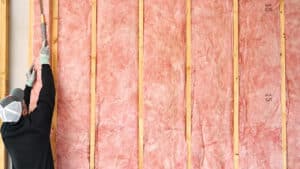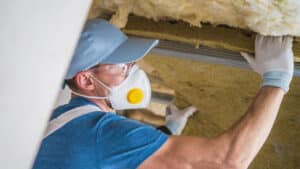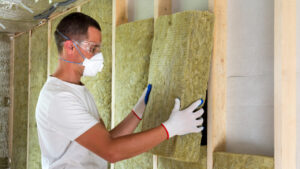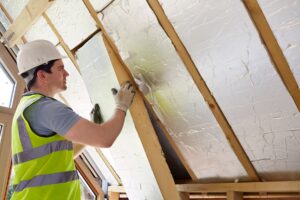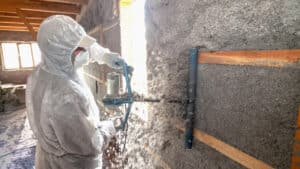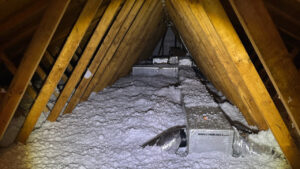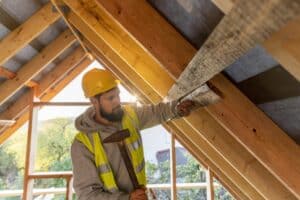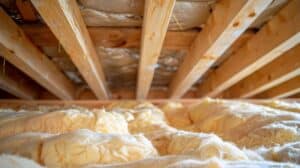Are you struggling with high energy bills and uncomfortable indoor temperatures in Virginia Beach’s humid climate? Cellulose insulation might be the solution you’re looking for. In this article, we’ll explore what cellulose insulation is and its benefits for homes in humid environments.
You’ll learn how this eco-friendly option made from recycled paper can effectively combat heat, prevent mold growth, and fit snugly between joists. Universal Insulation Doctor is here to help you understand why cellulose insulation could be the right choice for your Virginia Beach home.
What is Cellulose Insulation?
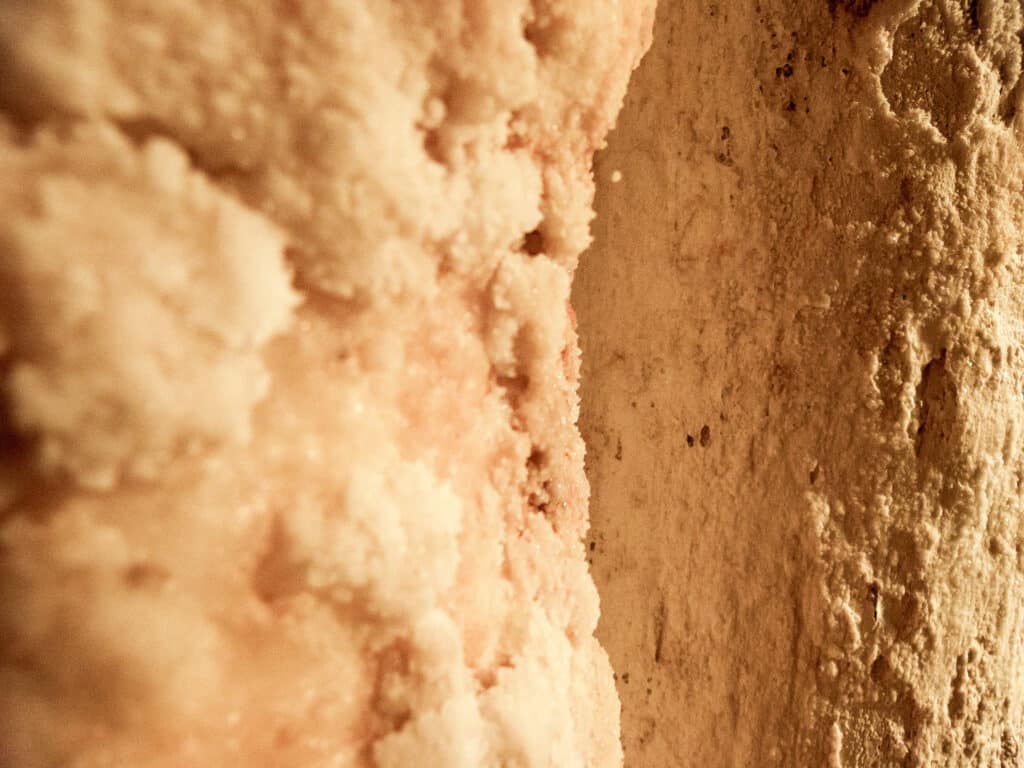
Cellulose insulation is a highly eco-friendly material made from recycled paper products, mainly newspapers. Treated with fire-retardant chemicals for added safety, it is blown into attics and wall cavities to effectively reduce heat transfer. Offering excellent thermal performance, cellulose insulation often outperforms traditional fiberglass in energy efficiency, with an R-value of 3.2 to 3.8 per inch—higher than the average R-value of fiberglass.
The fiber composition of cellulose insulation allows it to fill gaps and crevices seamlessly, creating a tight seal against air infiltration. This feature is especially beneficial for attic spaces, where it conforms to irregular shapes and provides thorough coverage. Its density also makes it a superior sound-dampening option, reducing noise transmission by up to 80% compared to traditional materials.
Another key advantage of cellulose insulation is its positive environmental impact. By recycling paper waste, the production process diverts significant amounts of material from landfills. Cellulose insulation is typically made from up to 85% recycled content by weight. Furthermore, manufacturing cellulose insulation consumes less energy than fiberglass, resulting in a smaller carbon footprint. Cellulose insulation uses eight times less energy to produce compared to fiberglass.
Benefits of Cellulose Insulation
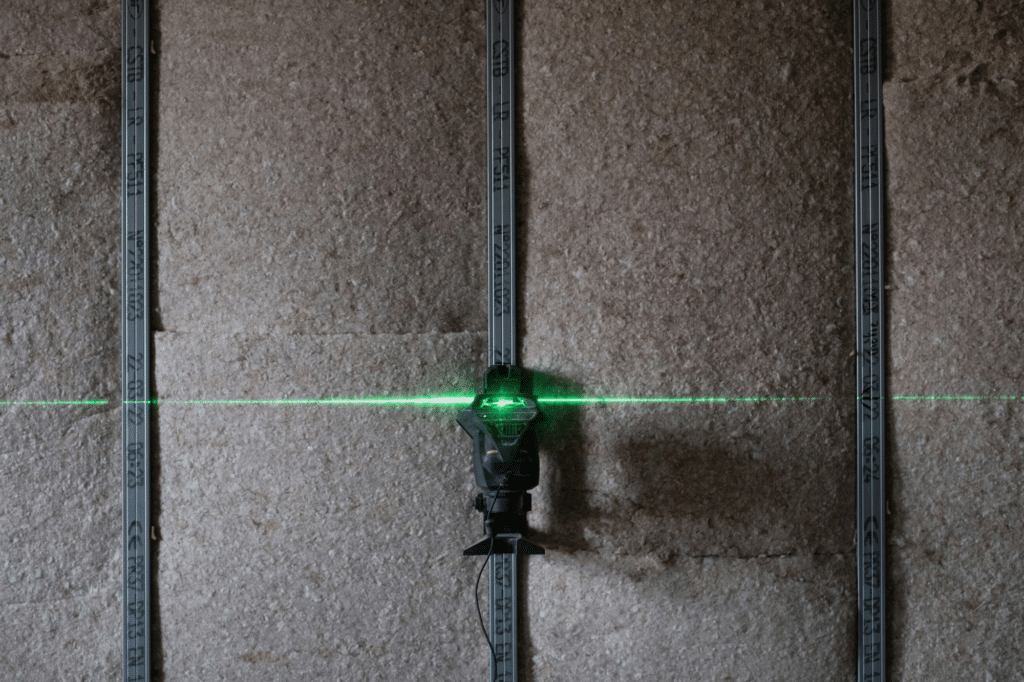
Cellulose insulation offers numerous benefits for homes in Virginia Beach’s humid climate. Its thermal insulation properties enhance energy efficiency, while its moisture management and air sealing capabilities protect buildings from humidity-related issues. This eco-friendly option provides excellent sound insulation, durability, and cost-effectiveness, making it ideal for attics, crawl spaces, and walls.
Energy Efficiency
Cellulose insulation significantly enhances energy efficiency, reducing utility costs and mitigating the effects of high humidity. Its dense structure prevents air leakage, minimizing the workload on air conditioning systems and helping maintain consistent indoor temperatures.
Properly installed cellulose insulation can reduce heating and cooling costs by up to 20-40% annually compared to traditional insulation.
This improved thermal performance not only lowers energy consumption but also creates an inhospitable environment for pests and mildew growth, addressing multiple concerns common in humid climates:
- Reduces heat transfer through walls and attics
- Decreases air conditioning usage and associated costs
- Minimizes moisture accumulation, deterring pests and mildew
- Creates a more comfortable living environment
Moisture Management
Cellulose insulation excels in moisture management. Its dense structure and moisture-resistant properties help control water vapor movement within walls, reducing the risk of condensation and mold growth.
The borate treatment used in cellulose insulation provides antifungal and antibacterial properties, making it more resistant to mold growth than other insulation types.
This insulation type also inhibits air infiltration, which further enhances its ability to regulate moisture levels and maintain a comfortable indoor environment. Additionally, cellulose insulation’s pest-deterrent qualities contribute to overall moisture control by preventing insect infestations that could compromise the building envelope:
| Moisture Management Feature | Benefit |
|---|---|
| Dense structure | Controls water vapor movement |
| Moisture-resistant properties | Reduces condensation risk |
| Air infiltration prevention | Regulates indoor moisture levels |
| Pest-deterrent qualities | Maintains building envelope integrity |
Air Sealing Capabilities
Cellulose insulation excels in air sealing, outperforming traditional options like spray foam. Its dense structure, enhanced by boric acid and fire retardant treatments, effectively blocks air infiltration in Virginia Beach homes. Cellulose insulation can reduce air infiltration by up to 38% compared to fiberglass insulation.
This superior air sealing contributes to energy conservation by reducing heat transfer and maintaining consistent indoor temperatures. The cellulose material’s ability to conform to irregular spaces ensures comprehensive coverage, addressing common air leakage points and enhancing overall insulation effectiveness:
| Air Sealing Feature | Benefit |
|---|---|
| Dense structure | Blocks air infiltration |
| Boric acid treatment | Enhances durability |
| Fire retardant properties | Improves safety |
| Conformity to irregular spaces | Ensures comprehensive coverage |
Durability and Longevity
Cellulose insulation offers exceptional durability and longevity. Its environmentally friendly composition, enhanced with borate treatments, provides excellent fire safety and resistance to wood-destroying organisms. The borate treatment in cellulose insulation can protect against termites, cockroaches, and other pests for up to 55 years.
The dense structure of cellulose insulation effectively reduces noise transmission, contributing to a quieter indoor environment. Over time, cellulose insulation maintains its performance, making it a cost-effective and reliable choice for long-term home insulation:
| Feature | Benefit |
|---|---|
| Borate treatment | Enhanced fire safety and pest resistance |
| Dense structure | Improved noise reduction |
| Stable performance | Long-term cost-effectiveness |
| Eco-friendly composition | Reduced environmental impact |
Sound Insulation
Cellulose insulation excels in sound insulation, outperforming traditional materials like fiberglass. Its dense structure effectively absorbs sound waves, reducing noise transmission between rooms and from outside sources. Cellulose insulation can reduce sound transmission by up to 70% compared to traditional insulation materials.
This property makes cellulose insulation an excellent choice for Virginia Beach homes, where traffic noise or close neighboring properties may be a concern.
Additionally, cellulose insulation’s sustainability factor, derived from recycled paper waste, contributes to its appeal as an eco-friendly option that doesn’t compromise performance.
Cost-Effectiveness
Cellulose insulation offers significant cost-effectiveness for homeowners, particularly in humid climates. This green building material provides excellent coverage in attic spaces and floors, improving indoor air quality while reducing energy costs. Its efficient installation process and long-lasting performance make it a smart investment for those seeking to enhance their home’s energy efficiency and comfort.
Potential Drawbacks of Cellulose Insulation in Humid Climate
Cellulose insulation can present several challenges when used in humid climates:
Moisture Absorption
One of the main drawbacks of cellulose insulation in humid environments is its tendency to absorb moisture. Cellulose can absorb up to 130% of its weight in water, which can lead to several issues:
- Reduced insulating effectiveness as wet insulation loses R-value
- Potential mold and mildew growth if the insulation remains damp
- Deterioration and settling of the insulation material over time
- Possible corrosion of metal components due to moisture retention
Settling and Compression
When exposed to humid conditions, cellulose insulation faces significant challenges with settling and compression issues. The material can experience settling of up to 20% over time, which leads to problematic gaps in coverage throughout the insulated area. This compression not only reduces the insulation’s effectiveness but also diminishes its overall R-value and thermal resistance properties. As the insulation continues to settle, homeowners may need to add more material to maintain proper coverage and insulating performance, resulting in additional maintenance costs and effort.
Air Quality Concerns
Moisture-laden cellulose insulation can significantly affect a home’s indoor air quality through several concerning mechanisms. When the insulation becomes damp, it can release dust particles and debris into the air, while also creating an environment conducive to mold growth. These mold spores can then circulate throughout the home via the HVAC system, potentially leading to serious health concerns for occupants. The situation is particularly problematic for individuals with existing allergies or respiratory conditions, as exposure to these airborne particles and mold spores can trigger or worsen their symptoms.
Maintenance and Longevity
In humid climates, the longevity of cellulose insulation can be significantly compromised, requiring more vigilant maintenance and monitoring. While cellulose typically lasts 20-30 years in optimal conditions, high humidity environments can accelerate deterioration and necessitate earlier replacement or supplementation. Homeowners in these climates must be particularly proactive in addressing moisture-related issues promptly, as water exposure can lead to material degradation and reduced effectiveness. Regular inspections become especially critical in humid regions, where early detection of moisture problems can help prevent extensive damage and maintain the insulation’s performance over time.
Installation Challenges
In humid environments, proper installation of insulation becomes a critical factor that demands meticulous attention to detail and expertise. Professional installation is particularly crucial as it ensures the correct implementation of moisture barriers and proper sealing techniques to protect against water infiltration.
Installers must take special precautions both during and after the installation process, including thorough sealing of all gaps, proper overlap of vapor barriers, and careful attention to vulnerable areas around windows, doors, and other openings. Additionally, maintaining adequate ventilation throughout the building envelope is essential, as a well-designed ventilation system works in conjunction with the insulation to control moisture levels and prevent condensation within wall cavities. This comprehensive approach to installation helps create a resilient building envelope that effectively manages humidity while maintaining optimal insulation performance.
It’s important to note that Virginia Beach has a humid subtropical climate with an average annual relative humidity of 75%, which can potentially exacerbate these moisture-related issues.
While cellulose insulation offers benefits like eco-friendliness and good air-sealing properties, these potential drawbacks should be carefully considered when choosing insulation for humid climates. Proper moisture control measures and regular maintenance are essential to mitigate these issues and maintain the insulation’s effectiveness.
Universal Insulation Doctor’s Professional Insulation Services
At Universal Insulation Doctor, we understand the significance of upholding effective insulation in your residence. Our insulation solution is designed to elevate the coziness and energy efficiency of your attic living areas.
We are one of the top insulation companies operating in and around Chesapeake, going strong for ten years. With an A+ rating from the Better Business Bureau, we have proven time and again that customer satisfaction is our top priority.
Whether you need work done in your attic, crawl space, or somewhere in between, we’ll be there to make sure it gets done right.
Contact Universal Insulation Doctor today to arrange a professional insulation service in Portsmouth. Call us at 757-962-0340 and discover the remarkable difference that expertise in the insulation industry can bring!
Frequently Asked Questions
What are the main components of cellulose insulation?
Cellulose insulation primarily consists of recycled paper products, such as newspapers and cardboard, which are treated with fire-retardant chemicals like boric acid and ammonium sulfate. These materials are ground into small fibers, creating a loose-fill insulation that effectively reduces heat transfer in homes.
How does cellulose insulation perform in humid climates like Virginia Beach?
In humid climates such as Virginia Beach, cellulose insulation performs well. Its treated fibers resist moisture absorption, preventing mold growth and maintaining effectiveness. Properly installed, cellulose helps regulate indoor humidity, enhancing comfort and energy efficiency in Hampton Roads homes.
Is cellulose insulation eco-friendly compared to other insulation materials?
When compared to other insulation materials, cellulose insulation is considered eco-friendly. Made from recycled paper products, it has a low environmental impact, reduces landfill waste, and requires less energy to manufacture than synthetic alternatives like fiberglass or foam insulation.
What are the energy-saving benefits of using cellulose insulation?
The energy-saving benefits of cellulose insulation are substantial for homeowners. Its high R-value per inch provides excellent thermal resistance, reducing heat transfer and lowering heating and cooling costs. Made from recycled materials, cellulose is also an eco-friendly choice that helps seal air leaks and improve overall home energy efficiency.
How long does cellulose insulation typically last in residential homes?
In residential homes, cellulose insulation generally lasts between 20 to 30 years when installed and maintained correctly. However, factors like moisture exposure, settling, and home renovations can impact its longevity. Regular inspections and addressing any issues promptly can help extend its lifespan.

